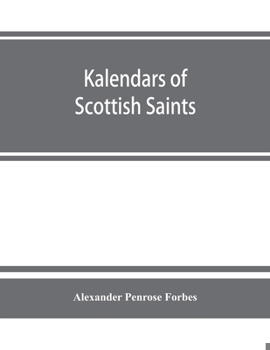Kalendars of Scottish Saints: With Personal Notices of Those of Alba, Laudonia, & Strathclyde: an Attempt to fix the Districts of Their Several Missions and the Churches Where They Were Chiefly had in
Select Format
Select Condition 
Book Overview
This is a reproduction of a book published before 1923. This book may have occasional imperfections such as missing or blurred pages, poor pictures, errant marks, etc. that were either part of the original artifact, or were introduced by the scanning process. We believe this work is culturally important, and despite the imperfections, have elected to bring it back into print as part of our continuing commitment to the preservation of printed works worldwide. We appreciate your understanding of the imperfections in the preservation process, and hope you enjoy this valuable book. This description may be from another edition of this product.
Format:Paperback
Language:English
ISBN:9353863384
ISBN13:9789353863388
Release Date:September 2019
Publisher:Alpha Edition
Length:526 Pages
Weight:2.66 lbs.
Dimensions:1.1" x 8.5" x 11.0"
More by William S 1802-1880 Plumer
Customer Reviews
5 customer ratings | 5 reviews
There are currently no reviews. Be the first to review this work.























